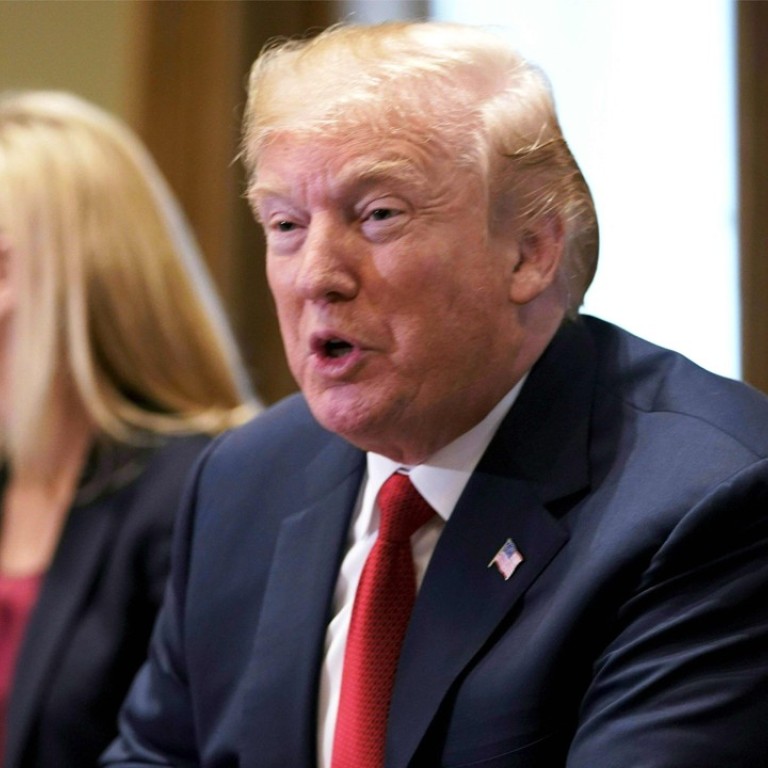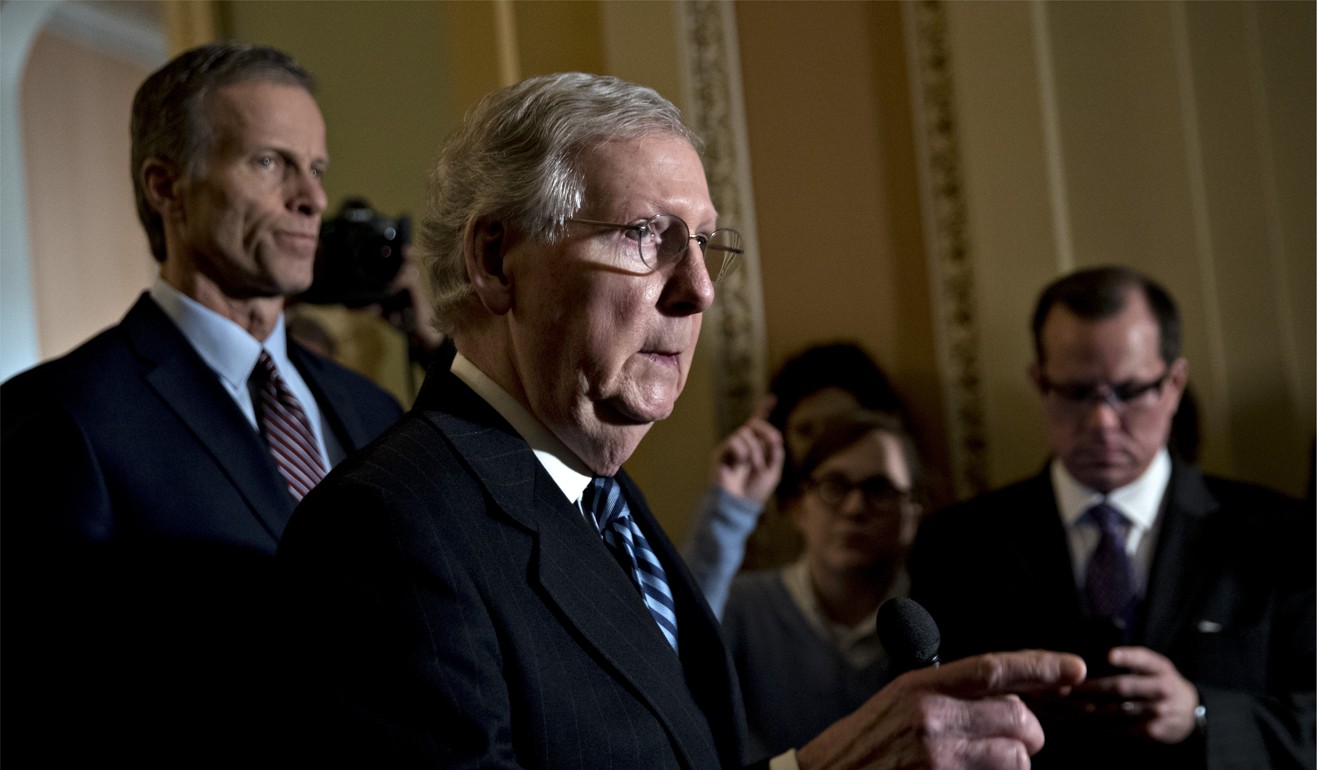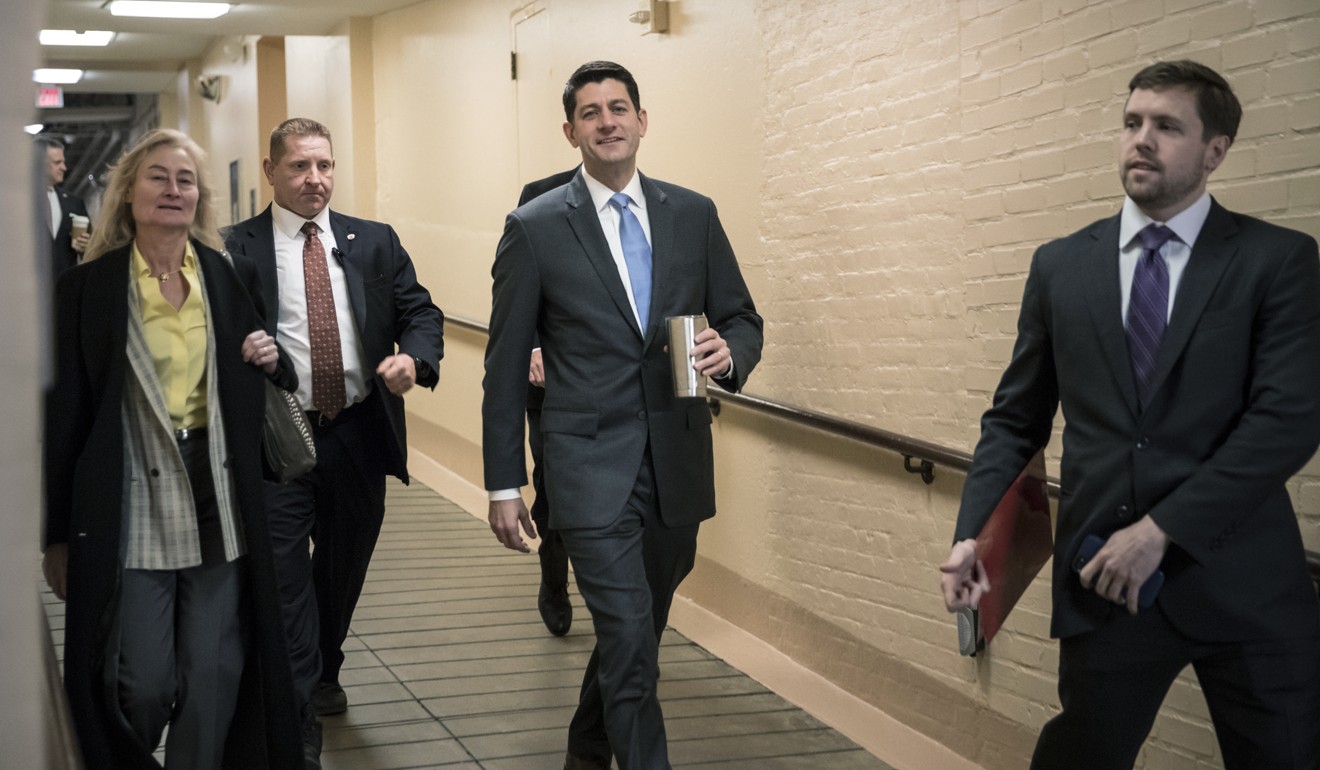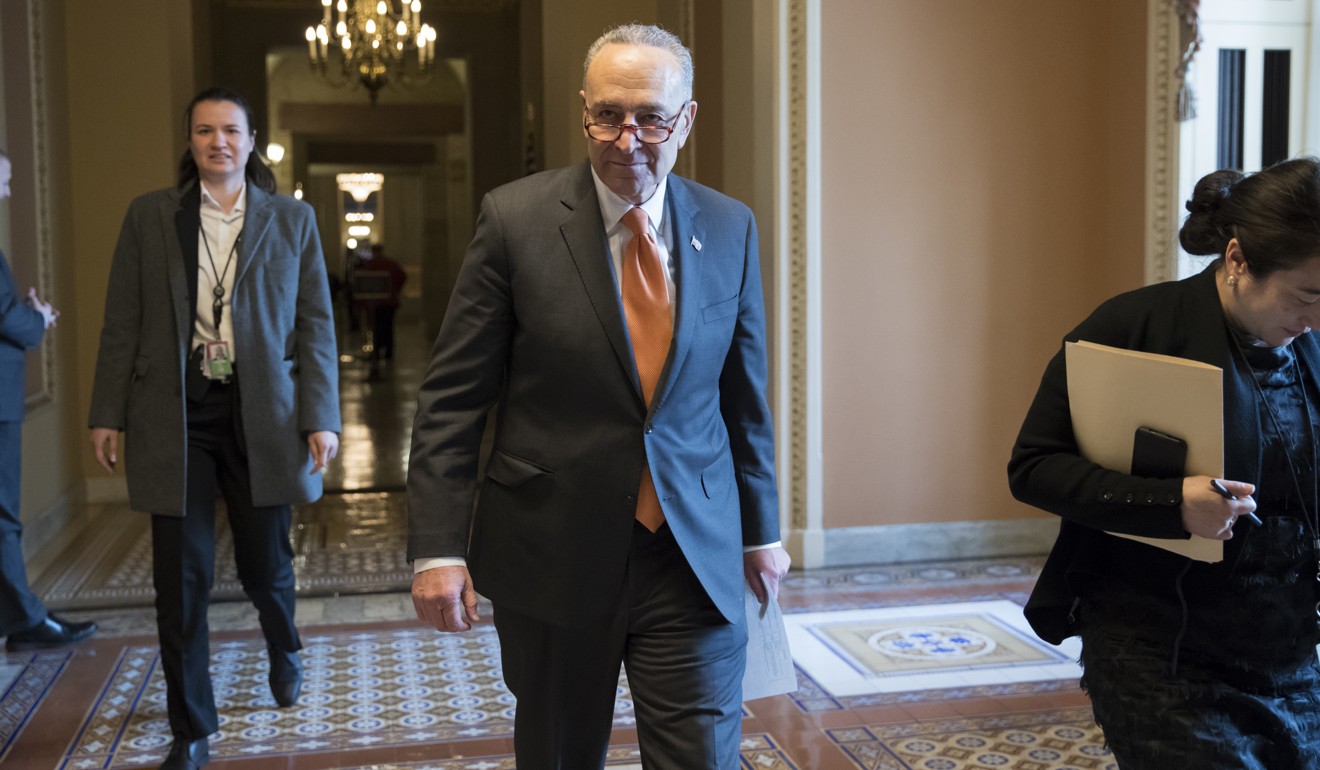
Donald Trump says he would ‘love a US government shutdown’ as funding debates continue
Republicans have proposed a temporary measure would keep the US government running through until March 23, but it is opposed by Democrats
US President Donald Trump has said he would welcome a federal government shutdown if Congress is not able to agree to changes in immigration law that he claims would prevent criminals from entering the country.
“If we don’t change the legislation, if we don’t get rid of these loopholes where killers are allowed to come into our country and continue to kill ... if we don’t change it, let’s have a shutdown,” Trump told a law enforcement panel discussing the California-originated MS-13 gang at the White House on Tuesday.
“I’d love to see a shutdown if we don’t get this stuff taken care of.”
Trump knocks down bipartisan immigration bill over lack of wall funding
Trump’s comments came as lawmakers are working on reaching a deal on spending limits two days before a stop-gap government funding bill is due to expire.

Meanwhile, the GOP-controlled House has said it wants to pass a plan to keep the government open for six more weeks while Washington grapples with the budget pact.
The measure comes as negotiations on a broader budget deal appear to be inching toward an agreement that would award both the Pentagon and domestic agencies with relief from a budget freeze.
“I’m pleased to report that our bipartisan talks continue to progress toward an agreement on spending caps and important priorities all of us are eager to address,” said Senate Majority Leader Mitch McConnell (Republican, Michigan).
The stopgap spending bill, which would avert a government shutdown that looms at midnight on Thursday, marries the stopgap spending bill to a full-year, US$659 billion Pentagon spending bill that’s a top priority of the party’s legion of defence hawks.
That idea, however, a non-starter with Senate Democrats, who insist that increases to both the Pentagon and domestic programmes advance at the same time.
Why China should heed America’s immigration debate
The temporary funding measure would keep the government running through March 23 and also reauthorise for funding for community health centres that enjoy widespread bipartisan support.
Pairing the Pentagon’s budget with only temporary money for the rest of the government would not go anywhere in the Senate, vowed Minority Leader Chuck Schumer (Democrat, New York), who said it “would be barrelling head first into a dead-end.”

Schumer and McConnell appear to be working toward a plan that would respond to the House bill with a long-awaited spending pact to give whopping increases both to the Pentagon and domestic programmes – almost $300 billion spread over two years.
Talks in the Senate on such a framework appeared to intensify in hopes of an agreement this week, aides and lawmakers said, and the House Republican Party strategy appeared designed in part to invite the Senate to complete budget negotiations and use the temporary spending bill to advance such a budget agreement.
Under Washington’s arcane ways, a broad-brush agreement to increase legally binding spending “caps” – which would otherwise keep the budgets for Pentagon and domestic agencies both essentially frozen – would be approved.
They would then be followed by a far more detailed catch-all spending bill that would takes weeks to negotiate.
Republicans had been scrambling to pass the stopgap measure through the House because they can’t count on support from Democrats – who feel stymied by inaction on legislation to protect young immigrants from deportation – to advance the legislation.
Trump taunts Schumer after senator dismisses president’s immigration plan
It’s clear Senate Democrats have no appetite for sparking another government shutdown. Their unity splintered during last month’s three-day shutdown.
One especially tricky question is whether House Democrats would approve of a spending agreement if there isn’t much progress in addressing the issue of immigrants left vulnerable with the looming expiration of the Deferred Action for Childhood Arrivals (DACA) programme.
That’s a top priority for many House Democrats, especially those lawmakers from the influential Hispanic Caucus, whose constituents are affected by the loss of the programme which protects immigrants who were brought into the US illegally as children.
House Minority Leader Nancy Pelosi (Democrat, California), has linked progress on the budget with action to address the programme but other Democrats are beginning to agitate for delinking the two, lest the opportunity for a budget pact be lost.

The broader budget picture is one in which Republican Party defence hawks are prevailing over the party’s depleted ranks of deficit hawks while Democrats leverage their influence to increase spending for domestic priorities such as combating opioid misuse.
The result could be the return of trillion-dollar deficits for the first time since former President Barack Obama’s first term.
Details are closely held and subject to change. But at issue is a two-year deal to increase caps on spending set by a failed 2011 budget deal.
Trump allies sneer at ‘Amnesty Don’ over citizenship idea for immigrants
Republicans have pushed for defence increases in the neighbourhood of US$80 billion a year and have offered Democrats nearly as much – US$60 billion or so per year – for non-defence programmes.
Add in US$80-90 billion worth of hurricane aid for Texas, Florida and Puerto Rico, health care funding and money for President Donald Trump’s border security plan, and the final tally could total close to US$400 billion.
The potential cost, over the 2018-19 budget years, would rival the deficit impact of last year’s tax measure over that period.

